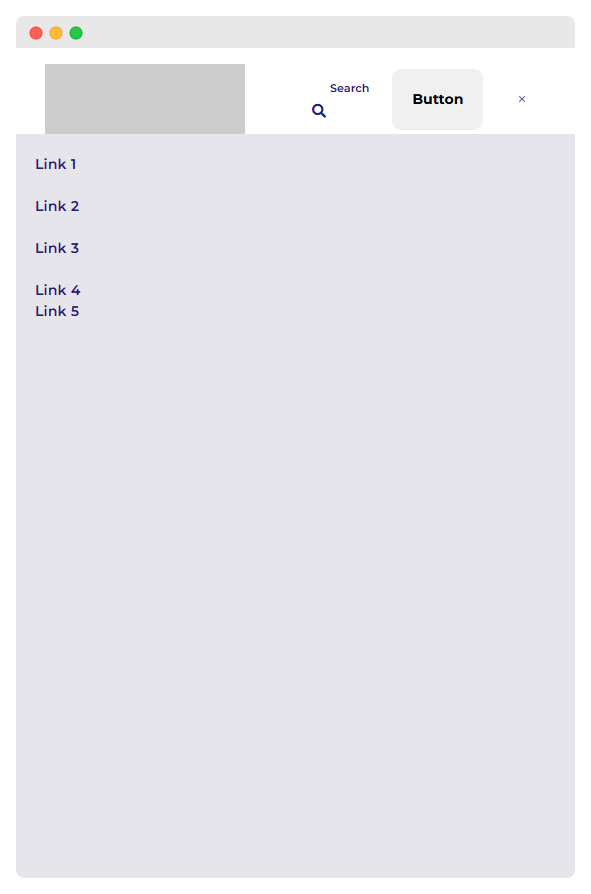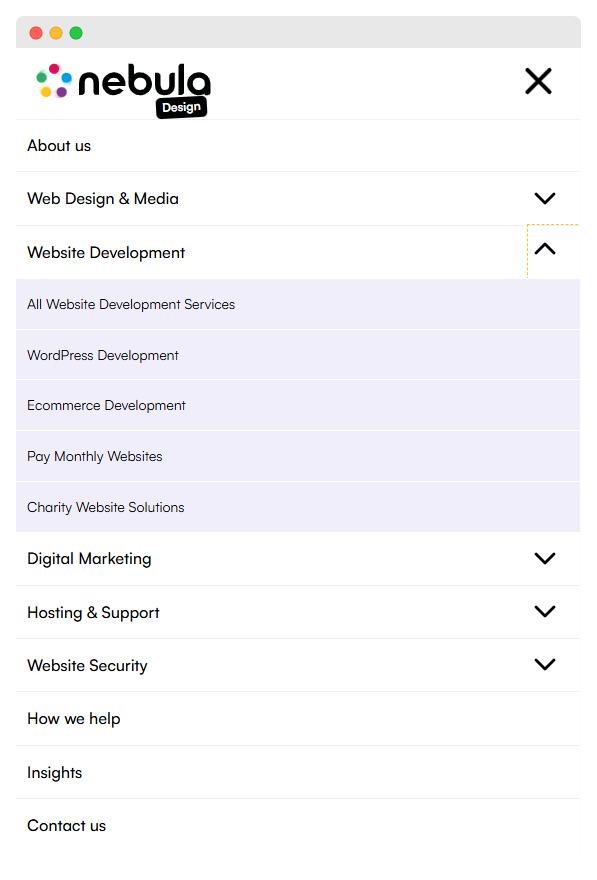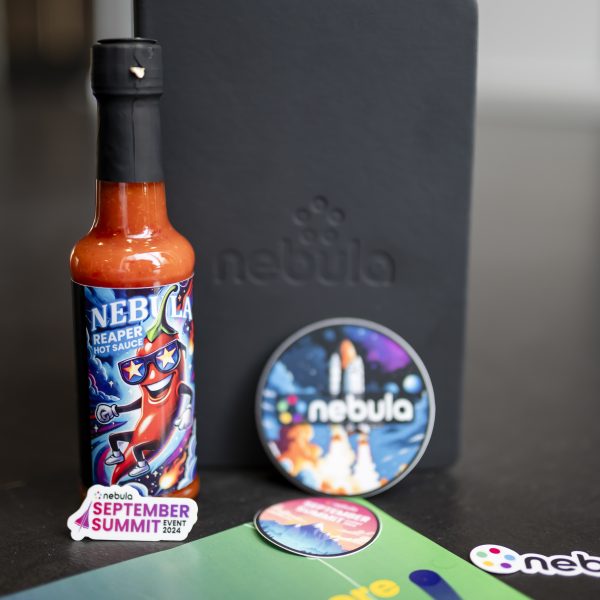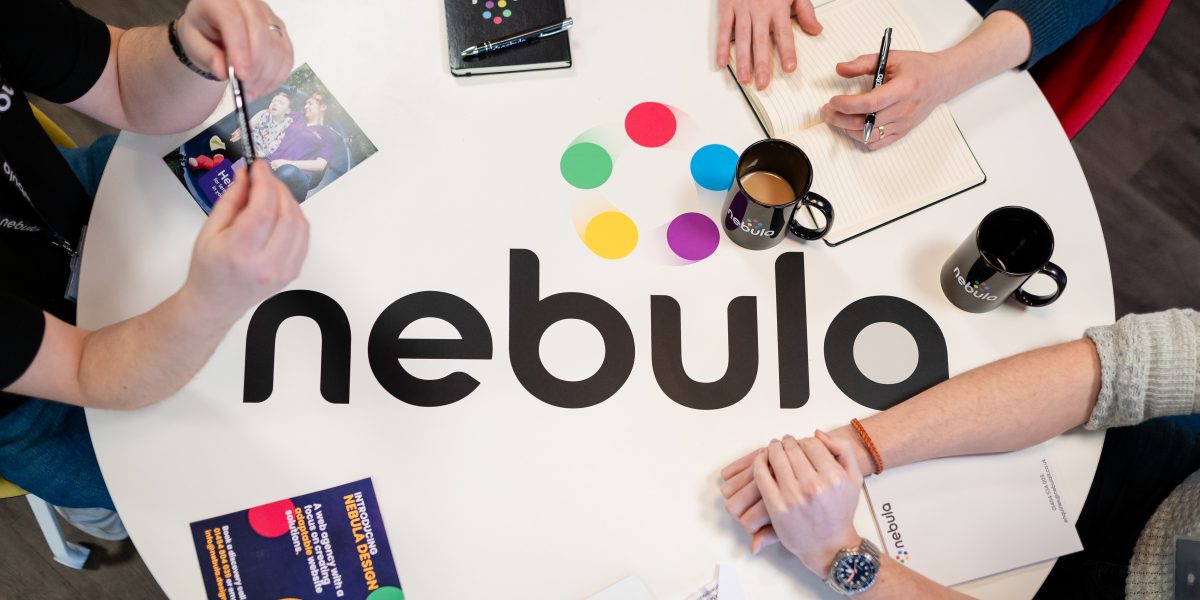Web design has never been more accessible. AI tools and visual page builders now promise sites anyone can launch without touching a line of code. And many agencies advertise “bespoke” websites, only to piece them together from generic templates, off‑the‑shelf plugins and designs already used dozens of times.
The result often looks polished on the surface, but the more you look, the more seems out of place, and underneath? Bloated code, limited flexibility and a site that never really feels like yours.
Imagine walking into a tailor’s shop. Instead of measuring you, they hand you a jacket designed to fit everyone. Sure, it sort of works – but it doesn’t feel quite right, and it never really will.
Your website should fit your business the way a tailored suit fits your frame: shaped around what makes you unique, comfortable to use every day, and built to move when you do.
That’s what we do, but for your online presence. We build and support websites, like many other web agencies, but what really makes us different is what happens behind the scenes.
Table of Contents
Invisible, intentional, essential: The art of subtle detail
It’s easy to underestimate how many small details shape a visitor’s experience.
Take something as ordinary as a mobile menu for your website. Many websites simply drop in a generic, off-the-shelf solution. After all, it’s “just” a menu.
But what if your site has an unusual content structure, or nested categories that need to feel intuitive on a small screen? What if the default animation distracts users or slows the page?


Part of what we do is to focus in on the finer details. We don’t treat it as “just” a menu. We design and code the right solution, so it feels natural for your visitors and works seamlessly across devices. It’s the difference between a made-to-measure suit and something you’re constantly trying to adjust all day to make it sit right.
Beyond templates: building around you, not around everyone
Many agencies and freelancers lean on paid or free templates from places like ThemeForest, ready-made themes designed to serve hundreds of potential businesses: hotels, plumbers, personal trainers, you name it. All for $62, bargain! Unfortunately, these templates often come crammed with dozens of layouts, scripts and design options you’ll probably never use and can’t remove.
At first glance, it seems harmless. But all that extra baggage slows your site down, makes it harder to maintain, and often leaves you boxed in when your business needs something a bit different.
We’ve taken a slightly different route. We’ve developed our own internal template solution: a lean, adaptable starting point built for flexibility, not restriction.
We know not every client wants animation. Not every site needs to list events or show an Instagram feed. So, we build conditionally: your website only loads and runs what it truly needs – nothing more, nothing less. It sounds so simple we’re honestly surprised this approach isn’t the standard for websites…

By utilising Gutenberg and React, we can build seamlessly into the editor, whilst ensuring the code generated is exactly what it should be. No unnecessary plugins, just solutions built around what makes WordPress, WordPress.
A great example is from one of our recent projects where there was a need to control the latest news structure. The default latest news block unfortunately didn’t contain enough flexibility or data. Our solution was to develop a new block for the website to give the client full, safe control.
The client can now drop this block anywhere on the site with a couple of clicks, and it just works – both in the editor and on the live site. It looks right, matches the design and feels like it was always part of the system.
This is how we see “content management”: giving you real control, without needing to call us every time you want to tweak a page.
Cutting code, not corners
In the background, WordPress website’s we typically develop are lean. Fewer plugins mean fewer updates to worry about, less chance of things breaking, and better performance for your visitors.
We’ve seen sites weighed down by dozens of plugins, 43 in one case, many of them doing overlapping or trivial jobs. It creates a fragile stack, where one outdated plugin can bring down the whole site. There is absolutely no need for a plugin to handle HTTPS requests or control the favicon (WordPress has this built in even…).

Instead, we code what’s needed and nothing more. The result is faster, more secure and easier to maintain.
AI tools to help you, not replace you
You’ve probably seen hype around AI-generated content. At Nebula, we take a more grounded view: AI should support the people who know the brand best… You.
Take Astrolytics, our add-on that turns raw Google Analytics and Search Console data into an easy-to-read dashboard. No more clicking through endless reports to understand what’s working. We understand your role and know there may be occasions you’re asked “How well did that marketing campaign do” – our solution gives you the answer.
Or Nebula Compose, which helps refine your human-written content, suggesting improvements rather than replacing your voice. It’s about giving you an expert editor on demand.

These tools save time and reveal insights, so your team can focus on bigger decisions. It’s about working smarter and not replacing the human.
One partner for your whole digital journey
Our services are designed to work together within your organisation seamlessly.
Consult, Design. Develop. Host. Support. All in one place.
That means fewer gaps between creative ideas and technical reality. When your marketing team dreams up a new campaign, we’re already thinking about performance, compliance and how to make it easy for them to launch.
And when questions come up – whether it’s about adding a feature, tightening security or helping staff work effectively – you know exactly who to call.
Focused on your success
We didn’t start as a big agency chasing awards. We began small and grew through referrals and long-term partnerships. That taught us to value every client, whether it’s a one-person startup or a global name.

Your success genuinely becomes ours. Because when your site performs, your marketing works, and your marketing team is happy, you’re more likely to recommend us. It’s in our best interest and ultimately, it makes us feel great that we’ve provided a service someone is happy with.
The house built for your family
If there’s one image to take away, it’s this:
Many agencies sell you a finished house you decorate. Nebula designs the foundations and structure around how your business actually lives and grows, and then decorates.
It might take a little longer and cost a bit more upfront, but the result fits better, lasts longer and is easier to adapt as your needs change.
That’s what makes Nebula, Nebula.
We’re more than just a web agency
In the very same building, you’ll find our managed IT support and cyber security team: the people who keep your data protected, your systems running smoothly, and your questions answered.
This means that whether you need a bespoke website, help understanding your Google Analytics, or clarity on a cyber security concern, you’re speaking to one team under one roof – not juggling emails between three different suppliers.
💡 Did you know?
Nebula often host free events focused on introducing you to upcoming technology aimed at helping your business. In 2024 we covered CoPilot and AI, Cyber Security best practices and all about managed IT services to streamline operations. We have something great lined up for 2025, announcing soon!



What’s next?
Now that you know a little about how we approach building websites, the next step is making sure your chosen agency is the right fit for you. Because it’s not just about the launch day, it’s about how your website grows and supports your business over time.
To help you make the best decision, here are some key questions to ask your web agency before you sign on the dotted line. 👇
Questions to Ask Your Web Agency Before You Sign
(And why the answers matter more than you might think)
Choosing a digital partner isn’t something to do lightly. A website, much like an office or a storefront, is something your business will live with every day: it affects your team’s efficiency, your brand’s credibility and even your bottom line.
Too often, businesses find themselves locked into sites that are slow, hard to update or riddled with hidden costs – usually because they didn’t know the right questions to ask up front.
Here’s a list of practical, revealing questions you should ask any web agency (including us) before signing on the dotted line and why each one matters.
1. “Will you build everything from scratch, or are you using templates?”
Why it matters:
Templates aren’t always bad, but they’re usually built to fit dozens of industries, which means unnecessary scripts and features you’ll never use. They can slow your site, create security risks and limit future changes.
What to look for:
An honest agency will explain what they use and why, when they build custom, and how they balance speed, cost and flexibility. Ask them to show real examples.
2. “How many plugins will my site rely on?”
Why it matters:
A high plugin count isn’t always a red flag – but too many can become a maintenance nightmare. Each plugin may need separate updates, licences or support, and conflicts can break your site.
What to look for:
Agencies that keep plugins to a minimum, explain why each is chosen and show examples of how they replaced plugins with custom code or Gutenberg blocks.
3. “How will we edit and update content ourselves?”
Why it matters:
If every text change or new page needs developer help, your marketing team slows down, and costs creep up. A genuinely user-friendly editing experience saves time and frustration.
What to look for:
A clear demo of the content editor. Agencies that use tools like Gutenberg effectively often create custom blocks tailored to your business – so your team can edit confidently without breaking layouts.
4. “What happens if we want to add new functionality later?”
Why it matters:
Your business will grow and change. A rigid website or obscure codebase can make new features expensive or impossible to add.
What to look for:
Agencies that build with open standards (like WordPress), and design modularly so future additions won’t need a rebuild.
5. “How do you handle mobile design?”
Why it matters:
More than half of website traffic is now mobile. A responsive design shouldn’t be an afterthought or a scaled-down desktop site.
What to look for:
Agencies that start designing mobile-first or explain how they adapt navigation, images and content for smaller screens – rather than using a one-size-fits-all mobile menu.
6. “Who hosts the website, and what happens if we move?”
Why it matters:
Some agencies tie hosting to their own servers or proprietary systems, making it hard to switch providers later.
What to look for:
Clear answers about hosting, access and what’s yours to take if you ever leave – your code, content and databases should belong to you.
7. “How do you keep our site secure?”
Why it matters:
Websites face constant threats, from bot attacks to data breaches. Security shouldn’t be an optional add-on.
What to look for:
Proactive measures: regular updates, server monitoring, SSL, secure development practices – and someone you can call if something goes wrong.
8. “What ongoing costs should we expect?”
Why it matters:
Surprise expenses – premium plugins, stock images, API usage fees – can turn a seemingly cheap site into an expensive commitment.
What to look for:
A detailed list of ongoing costs: hosting, licensing, support retainers, domain renewals. Transparency upfront builds trust.
9. “Once the site is live, how can you help us keep improving it?”
Why it matters:
A website isn’t a one-off project. The right tools help your team test ideas, track performance and adapt over time. A stagnent website will work initially, but in time, trends change, demand varies and the website should adapt.
What to look for:
Agencies/freelancers that see your website as a living project, not a finished product. Look for offers like ongoing support, performance reviews, content strategy help or dashboards that turn data into actionable insights.
10. “Can you share examples of projects like ours, and explain why you made certain choices?”
Why it matters:
Case studies reveal not just what the agency built, but how they solved real business problems.
What to look for:
Stories that show strategic thinking: why certain design patterns, technologies or content structures were chosen to fit that client’s goals.
Final thought: ask how, not just what
Great agencies won’t just list features. They’’’ll explain the why behind each choice – showing they understand both technology and your business.
